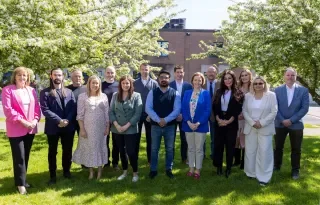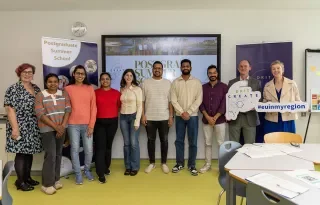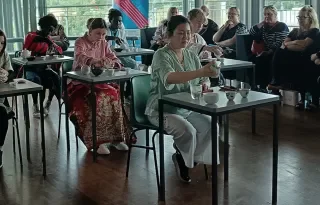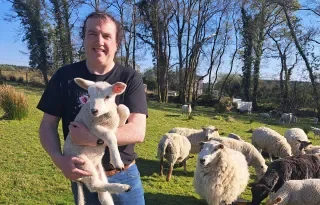Meet The Scientist: Dr Annamarie Rogers
Dundalk Institute of Technology (DkIT) as part of its celebration of all things Science and the pending opening of their new State of the art 1,300 sqm Science Building this September, are delighted to bring you a collection of ‘Meet the Scientist’ profiles with some of the Institute’s leading Science academics.
Dr Annamarie Rogers is a lecturer and Programme Director for Biopharmaceutical Science in DkIT. Dr Rogers has an impressive 20 years’ experience in cell culture and founded the first cell culture lab in the Institute in 2011, so the opening of the new Science Building in DkIT is particularly exciting for Annamarie as the new facility will house an innovative new cell culture facility, which was designed to accommodate the culture of cell lines. These labs will give DkIT students direct experience with the technologies and processes commonly used in current, sophisticated biotechnology settings.
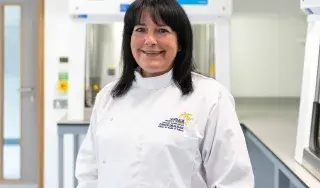
Dr Rogers love of all things Science was ignited in secondary school when she was first introduced to Science subjects, she said
“My passion for Science began in Eureka Secondary School, Kells, Meath where I studied Biology and Chemistry for my Leaving Certificate. I fell in love with Science and enthusiastically continued my science education in Trinity College Dublin and graduated with a BA (Mod) in Biochemistry in 1998”.
Following Dr Rogers degree, she was offered a PhD in Bayer Health Care, Germany. Her research focused on examining the treatment potential of various drugs produced by Bayer for targeting devastating neurological diseases such as Huntington's and Alzheimer's disease. After she finished her Ph.D she remained in Bayer as a post-doctoral researcher until she moved back to Ireland in 2005 where she took up the offer of a second post-doctoral research position in the Trinity Centre for Health Sciences, AMNCH. Her research focused on pancreatic cancer gene expression profiling, using both human pancreatic tumour tissue and tumour cells grown from cell banks. Dr Rogers said of this research “because of the very poor prognosis associated with pancreatic cancer, we wanted to identify a genetic signature for this disease. We successfully identified a profile, and our research findings were presented at various conferences in addition to being published in peer-reviewed journal publications”.
In 2010, DkIT were delighted to welcome Annamarie as a Biopharmaceutical Science Lecturer. Dr Rogers said of her transition into education
“my undergraduate supervisor in Trinity College once told me that the greatest pleasure in life is to teach and pass on your knowledge to young science students. I still carry this sentiment with me; I strive to pass on, not only my knowledge, but also my passion for science”.
In 2011, Dr Rogers set up a small cell culture laboratory in DkIT. Over the following years she trained DkIT students in specialised cell culture techniques,
“The students were trained to thaw cells from liquid nitrogen, grow and passage cells and finally treat cells with different chemotherapeutic drugs. Over the past 12 years, I have had the pleasure and privilege of teaching some fantastic students. Many remain in contact with me, and it fills me with pride to follow their careers and their achievements”.
Dr Rogers is the Programme Director for the Biopharmaceutical Science course which involves the development and processing of “biological” drugs, for the targeted treatment of cancer and illnesses such as rheumatoid arthritis in humans, by artificially growing biological hosts (E. coli bacterial cells or mammalian Chinese hamster ovary cells) using cell culture technologies. She revealed
“the processes involved are more biological-based as compared to the more chemical-based processes associated with small-molecule pharmaceutical products. The Medical Biotechnology and Biopharmaceutical sectors are among the fastest growing in the Life Sciences area both nationally and internationally”.
Annamarie added,
“I’m extremely excited about the new cell culture facility in our new building in DkIT. Skills in cell culture are readily transferable: once trained, a student can really culture any cell, primary or secondary, human or animal derived. This will provide our students with an invaluable skill set and increased career opportunities. Graduates from our programme have careers in Biopharma Manufacturing, Quality Control, and Research and Development in a range of Bio- Industry sectors. Some of our students continued their studies and undertook a Masters or a PhD programmes in Biology-related disciplines in Ireland or abroad”.
